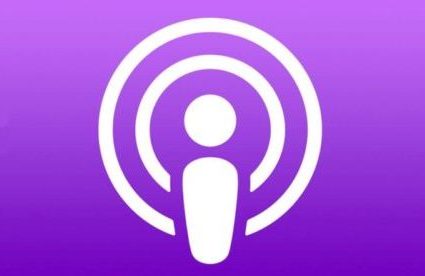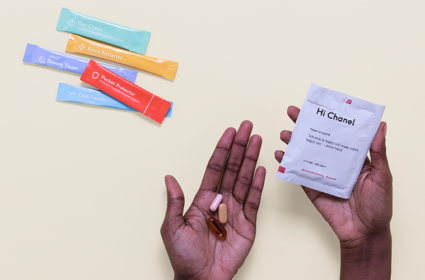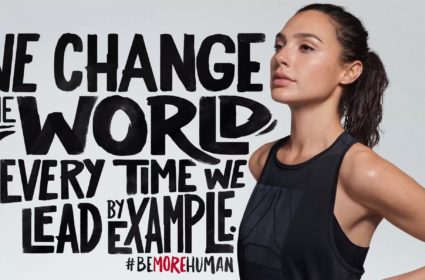Big data and personality profiling… what’ve we’ve been reading this week at Brand Genetics
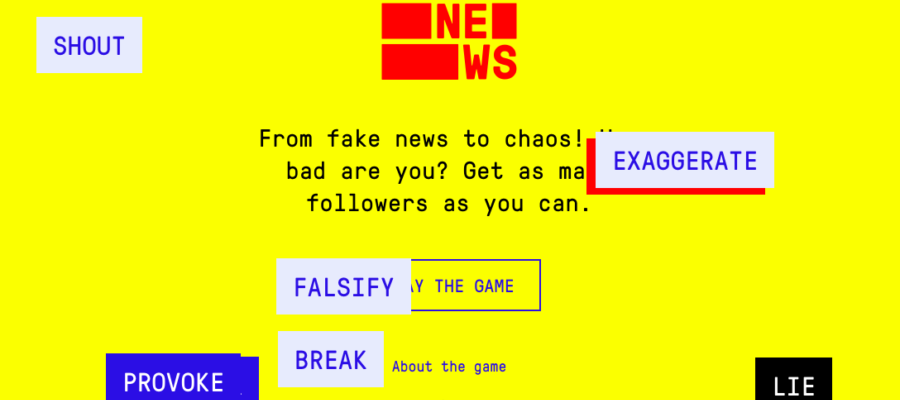
We’ve been reading all about the Cambridge Analytica files and a few unorthodox insights have caught our eye…
While we’re not going to touch on the heated debate itself (for background, see here, here and here), we did want to focus on two interesting offshoots of the Cambridge Analytica files: personality profiling and fake news.
For those who haven’t been following, Cambridge Analytica and similar consultancies leverage individual and group data — such as demographics, internet activity, and past behaviour — to better understand what motivates people, creating psychological profiles and tailoring communications accordingly to ‘change audience behaviour.’ Personality testing has long been a staple of HR departments everywhere, but there is a growing shift towards applying similar thinking to the world of consumers.
Why? It has been increasingly shown that stated behaviour / preferences don’t always match up with actual behaviour (see Figure 1). There are several reasons for this, but one explanation is the social desirability bias (similar to ‘virtue signalling’): the tendency for people to tell small (white) lies in order to make themselves look better in front of their peers and society. This is a key driver behind the adoption of more empathetic and observational research techniques, where the focus is less on stated desires / preferences and more on hands-on, behaviour-based learning that is much harder to engineer. “The power in Google data,” Seth Stephens-Davidowitz explains in Everybody Lies, “is that people tell the giant search engine things they might not tell anyone else” making such online sources a sort of “digital truth serum” — separating fact from fiction.
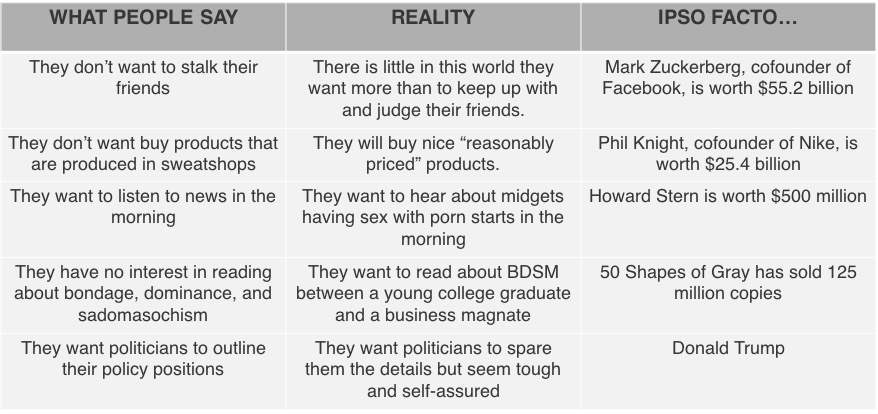
Figure 1: What people say vs. What they do from “Everybody Lies” by Seth Stephens-Davidowitz
Ironically, while the abundance of such data can be a window into the truth, it can also serve as the fodder for manipulation and dishonesty: what we’ve come to know as ‘fake news.’ While several attempts have been made to curtail its influence and spread, last week saw the launch of a fake news ‘vaccine’ designed by University of Cambridge researchers and Dutch media collective DROG. Presented as an online game, it works much the same way biological inoculations do, exposing players to the “techniques and motivations behind the spread of disinformation” in order to mitigate the impact of fake news. While its effectiveness remains unclear, it’s a thought-provoking attempt to ensure a smarter future in the wake of big data.
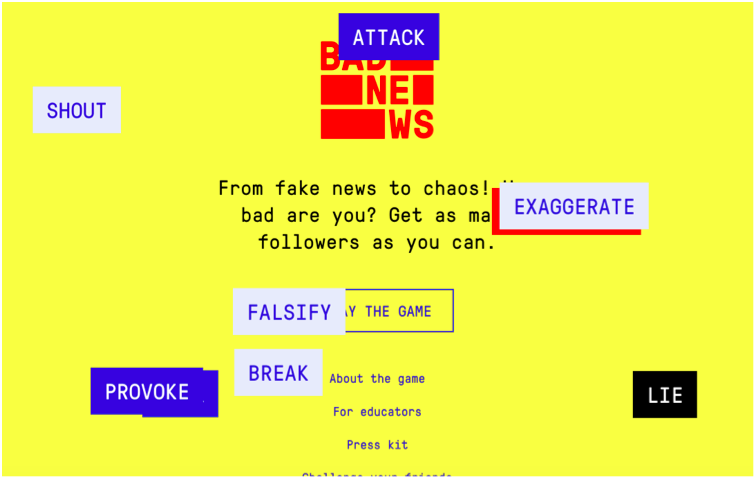
‘Bad News’ game which aims to ‘inoculate’ against fake news
The Human Experience (HX) learnings? Personality and behavioural profiling have the potential to offer a more accurate and comprehensive tool for understanding consumer motivations than traditional market research. They provide a tangible solution to counteract our social desirability bias, thus ensuring more relevant and successful outputs. But the access to such massive amounts of personal data comes with a level of responsibility and a leap of faith. We believe it’s up to researchers, entrepreneurs, and legislators to think human first, and use such data only in ways that are transparent, approved, and in the best interest of individuals and society.
If done intelligently and responsibly, we believe big data and personality profiling has massive potential to reinvent and reshape the way we think about consumers. For if we crudely define innovation as ‘something new or novel that adds value to the world’, the best way to add value is to design the most relevant solutions, and the best way to do that is by truly understanding the people you’re designing for.

